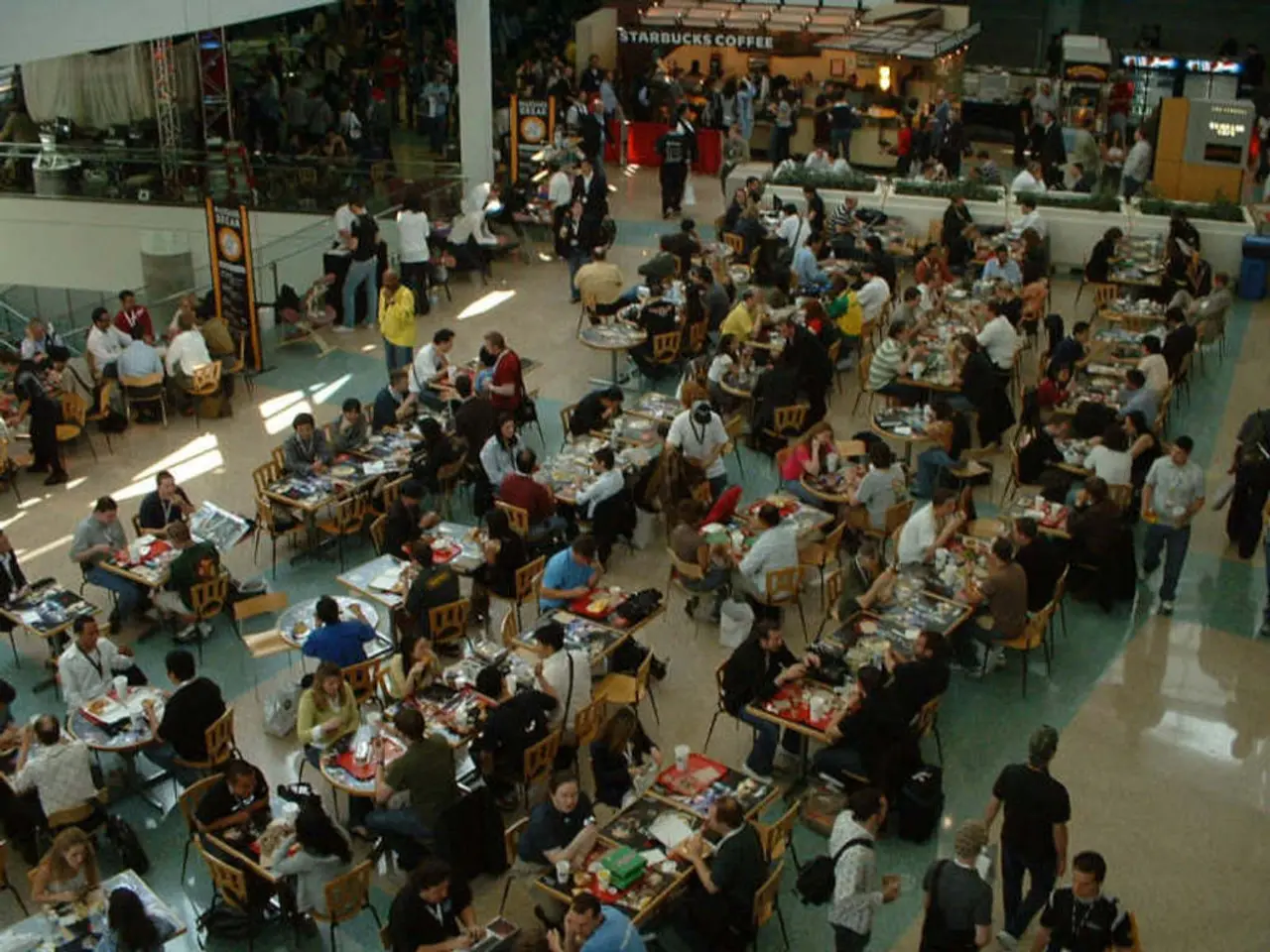Cafés have the liberty to operate under their chosen identities, whereas a name may be bound by certain regulations or historic associations.
In the heart of Oberursel, Germany, a new café has made a splash just two weeks after opening. "Coffee, Brownies & Downies," as it's called, has quickly become the highest-rated café in the area, according to Google reviews. This inclusive café, founded by Max Luscher and Roland Braza, is more than just a place to grab a bite and a drink - it's a beacon of social inclusion.
The café balances profitability and inclusion by employing a mixed team of people with and without disabilities. The founders, both fathers of children with severe disabilities, aim to integrate people with disabilities into the mainstream labor market while operating a modern, scalable café business. They prioritise a gradual operational rollout, starting with a reduced menu and digital support to ensure efficiency and quality service, with the ultimate goal of sustainability alongside social impact.
The café's name, "Downies," is used symbolically to represent people with severe disabilities broadly, not exclusively those with Down syndrome. While the name can be polarizing and may elicit strong reactions, the founders accept this deliberately to increase the visibility of inclusion in the labor market. The name aims to challenge societal perceptions and promote visibility, although some may find it provocative.
However, not everyone is on board with the name. The chairwoman of the Hessian State Council for the Disabled, Naxina Wienstroer, finds the name offensive and hurtful to people with Down syndrome. Contrastingly, Florian Russ, a service staff member, enjoys working at the café, stating that he looks forward to work every morning and appreciates working with disabled people.
To recruit employees, the café has adopted a new approach, relying on posters, social media marketing, and radio interviews, resulting in a high number of applications. All employees, regardless of their ability level, earn at least the minimum wage.
The café simplifies workflows in gastronomy by replacing table numbers with pictures, using QR codes for ordering and payment, preparing simple dishes, and operating the coffee machine via buttons. This approach has been praised by the State Council for the Disabled.
Luscher and Braza aim to demonstrate that fair pay for inclusive work and profitable, high-quality gastronomy are not mutually exclusive. They argue that a little cheekiness is important in a business idea to create attention, and they are sorry if anyone feels insulted by the term "Downie."
In a bold move, the café has registered as a franchise company, allowing other restaurateurs to take over the café concept and open another branch. The ambitious goal of the entrepreneurs is to expand the café chain to 100 locations throughout Germany.
Despite the controversy surrounding the name, the café's mission of social inclusion and awareness is clear. Luscher and Braza are determined to prove that profitability and inclusion can coexist, and they are well on their way to doing so.
Read also:
- Enhanced solar power for 600-watt power stations: the BOOSTER unit offers an upgrade.
- Toyota's Kaizen Initiative Yields Staggering Results in Agricultural Sectors
- Parent Pays Rent and Utilities to Father Monthly for His 6-Year-Old Daughter's Stay
- Local authorities imposing a fee on dwellings classified as habitable yet constructed as outdoor structures, referred to colloquially as the 'garden shed tax'.






